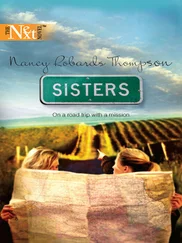“In plenty of time for the festival,” I assured her. “Until then, it’s imperative that you stay away from the schoolhouse. Otherwise . . .” I had no idea what to say next, but it didn’t seem to matter.
“I knew I could depend on you, Lori,” said Peggy. She tapped the side of her nose, gave me a knowing nod, and made a stately procession back to her shop.
I wilted with relief, then retraced my steps to the schoolhouse. The door had been left open, and I stepped into the cloakroom, a long, narrow foyer with rows of hooks affixed to the walls at child height.
As Peggy had said, the village school hadn’t been used as a school for ages. It had once contained two classrooms, but the dividing wall had been removed to create a single open space that served as an all-purpose meeting place. Bill and his fellow Merry Morrismen practiced there on inclement days, Lilian Bunting held church jumble sales under the peaked roof, and Peggy Kitchen chaired Women’s Institute meetings from the raised platform at the far end, where the teachers’ desks had once stood.
The young man and woman were hovering over the boxes they’d unloaded from the paneled van, and a daunting array of archaeological equipment—black-and-white measuring sticks, high-powered lamps, dental picks, tarpaulins, spades—lay strewn across folding tables or stacked in the cupboards lining the schoolhouse walls. The vicar’s fears, it seemed, had been well-founded. It looked as though Adrian Culver was preparing for an extended stay.
“Hello,” I said, from the inner doorway. “My name’s Lori Shepherd. I’m the local UN peacekeeper, and I hereby declare these premises to be a safe haven.”
The boy grinned, set aside an armful of rope, and came over to shake my hand. “Simon Blakely and Katrina Graham,” he said, beckoning to the stocky girl. “We’re working with Dr. Culver on the dig. Thanks awfully for helping us out. We’d no idea we were making such a nuisance of ourselves.”
“ That woman is more of a nuisance than we are, Simon,” said Katrina, coming to join us. “She made the same sort of scene when we arrived. At seven o’clock on a Sunday morning! Frightened the poor vicar half to death. Is she mad?”
It was a debatable point, but I let it slide, choosing instead to spell out Peggy’s concerns about the festival.
“That explains the camp bed,” said Simon, pointing to a folding cot in the corner. “We couldn’t understand why Dr. Culver decided to sleep here for the duration, but if the natives are restless . . .”
Katrina nodded. “He won’t want to leave our gear unprotected.”
“Where is he now?” I asked.
“Staking a grid at Scrag End,” Simon answered. “He’s eager to get the project under way.” Simon glanced again at Katrina. “It’s a pity about the festival, but we’ve scarcely begun the preliminary survey. We’re here to help Dr. Culver set up, but there’ll be ten more students joining us next week.”
“And we must have a local building for storage and analysis,” Katrina chimed in, gesturing toward the boxes. “My word, can you imagine carting this lot back and forth from Oxford every day?”
“I suppose not.” I gazed at the boxes, disheartened. I’d nursed a faint hope of convincing the two sides to share the schoolhouse, but realized now that my simple solution wouldn’t fly—the schoolroom just wasn’t big enough for both of them.
“We’re sorry,” Simon said. “Honestly, we didn’t know about the festival. If we had—”
“It wouldn’t have mattered,” said Katrina, with a ruthless glint in her eye. “Any fool can see that Dr. Culver’s discovery takes precedence over a local fair.”
Simon flushed. “You’ll have to forgive my colleague,” he said. “She’s caught a bad case of academic zeal.”
“I understand,” I said, smiling. “But I’d suggest that you keep your zeal under wraps while you’re here. A low profile will go a long way toward appeasing the natives.”
“We’ll do our best,” said Simon. “No more loud laughter on the square.”
The pair returned to their unpacking while I headed for Bill’s office. I had half a mind to let the air out of his bicycle tires. The three-mile walk to the cottage would give my husband ample time to reflect on the evils of plunging his devoted spouse into the middle of a civil war.
Seething with righteous indignation, I let myself into the office, faced Bill’s desk squarely, and was on the verge of firing a stream of well-chosen words into his much-loved face when a voice behind me asked, “Can you stand on your head?”
I froze, openmouthed, then pivoted slowly until I beheld a pair of grubby pink sneakers, a bruised shin, and a bandaged knee waving unsteadily in the air. They belonged to a little girl who was going beet-red in the face as she demonstrated her own gymnastic prowess.
“I’m Rainey Dawson,” she added, bouncing to her feet. “I’m staying with Gran while Mum gets used to Jack. Jack’s my new baby brother and he doesn’t half make a row, so Mum sent me to stay with Gran until he’s more grown-up, and Gran said I could visit Bill this afternoon while she has a lie-down, and I’m having a splendid time.”
Rainey Dawson’s auburn hair hung down her back in two bedraggled braids and across her forehead in an uneven, flyaway fringe. Her long nose and narrow face were smudged with dirt, as were her formerly pink T-shirt and checked shorts.
“I’m going to be nine this coming Sunday,” she announced, jiggling from foot to foot. “Do you live in Finch? Will you come to my party? Bill’s going to sit with me and Gran, and help me cut the cake.” She leaned against Bill’s desk and fluttered her eyelashes worshipfully. “I adore Bill. He lets me push the buttons on the fax machine.”
My adorable husband was sitting with his eyes shut and his head in his hands. I looked down at the little chatter-box and beamed. I couldn’t have invented a better form of revenge. An afternoon with Rainey Dawson was surely equal to twenty minutes with Peggy Kitchen.
“I’d love to come to your party, Rainey,” I said. “ Thank you very much for inviting me.”
“Gran said I could invite anyone I liked,” Rainey informed me. “She has the tearoom next door and—” Rainey broke off abruptly and stared hard at my chest. “ You’ve got a baby,” she said.
I folded my arms self-consciously. “What makes you say that?”
Rainey pointed at my folded arms. “You’ve got spots on your blouse, just like Mum.”
“Spots on my . . .” I glanced down and saw a pair of telltale damp patches on the front of my hitherto clean blouse. “Ack!” I cried. “I’m late! The boys’ll be starving! And it’s all your fault!” I shook a fist at Bill as I sprinted for the door, and hollered over my shoulder, “Keep talking, Rainey!”
6.
I gunned the Mini all the way home and skidded into the driveway with such reckless abandon that I came within inches of hitting the horse.
“Sorry, Rosie!” I cried, as the poor creature shied. “But I’m late!”
The chestnut mare’s presence on my front lawn meant that Emma Harris had come to call. Rocinante belonged to Nell, Emma’s thirteen-year-old stepdaughter, but since Nell was spending the summer in Paris with her paternal grandfather, Rosie’s daily regimen of training and exercise had become Emma’s responsibility. “It’s the least I can do,” Emma had told me, “considering Rosie’s voluminous contributions to my garden.”
I scrambled out of the Mini, gave Rosie’s nose an apologetic rub, and hastened into the cottage, ears cocked for the piteous wailing of my neglected infants.
Silence greeted me.
I dashed into the living room, saw that the playpen was empty, and darted upstairs to check the nursery.
Читать дальше








